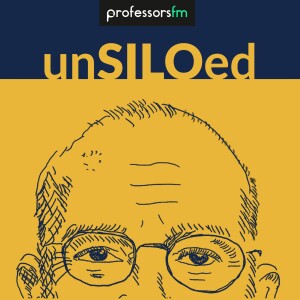
The Rise of the Economists feat. Binyamin Appelbaum
 2022-04-06
2022-04-06
Binyamin Appelbaum on the editorial board of the New York Times as well as a reporter there. He is also the author of “The Economists' Hour: False Prophets, Free Markets, and the Fracture of Society.”
In this book & his work, Binyamin traces the rise of the economists, first in the United States and then around the globe, as their ideas reshaped the modern world, curbing government, unleashing corporations and hastening globalization.
This episode focuses on economic consensus around positive vs normative approaches, whether political beliefs shape the intellectual inquiry or vice versa, the origins of the anti draft movement and the evolution of antitrust enforcement.
Episode QuotesThe end of the economists hour:
That degree of veneration, of deference, of trust in economists, I think, is not going to be recovered at least while living memory of those events is with us. And I think that is what I mean by the end of the economist's hour. Is this period of growing and ultimately unquestioned influence over the direction of economic policy really reaches its endpoint with the global financial crisis.
Antitrust enforcement:
It's not just the influence of economists. It's an economic idea being seized upon by corporate interests and their political allies carried into practice in a very particular way with a very particular set of outcomes. That's the world we live in today, is a world in which, for all intents and purposes, antitrust enforcement is a dead letter in the United States.
Political beliefs in economics:
Friedman used to say that the work of a good economist, you shouldn't be able to tell their political beliefs by looking at their work. And his wife used to say that he was being ridiculous. And I'm on his wife's side. She was absolutely right. If you show me the work of an economist, I can tell you a great deal about their political beliefs with a high degree of accuracy. And there's a reason for that.
Placing value on things:
The things that couldn't be valued would be ignored in policymaking, if you couldn't put a price tag on it, it wasn't going to have a seat at the table. And I think to this day, that remains true. And the dominant response in economics has been to try to assign values to more and more things. The value of lost time, the value of a view that is no longer available, the value of a sunny day. and not to grapple with the question of, well aren't there some things that we're never going to value properly. And how do we include those in a rational decision-making process?
Guest Profile:
- Professional Profile at The New York Times
- Binyamin Appelbaum’s Website
- Binyamin Appelbaum on Linkedin
- Binyamin Appelbaum on Twitter
His work:
- Columns at The New York Times
- The Economists' Hour: False Prophets, Free Markets, and the Fracture of Society
More Episodes
Create your
podcast in
minutes
- Full-featured podcast site
- Unlimited storage and bandwidth
- Comprehensive podcast stats
- Distribute to Apple Podcasts, Spotify, and more
- Make money with your podcast
It is Free
- Privacy Policy
- Cookie Policy
- Terms of Use
- Consent Preferences
- Copyright © 2015-2024 Podbean.com






